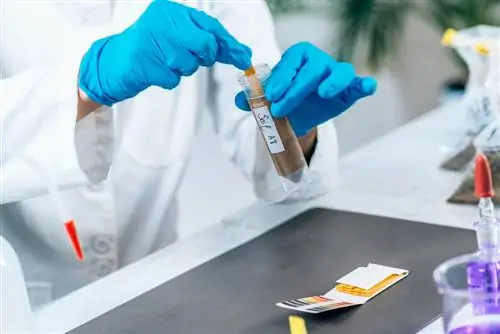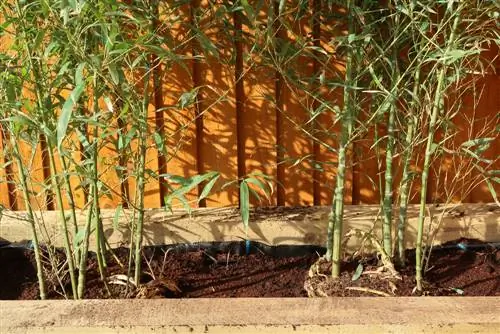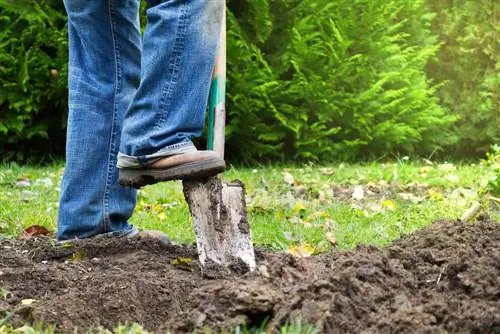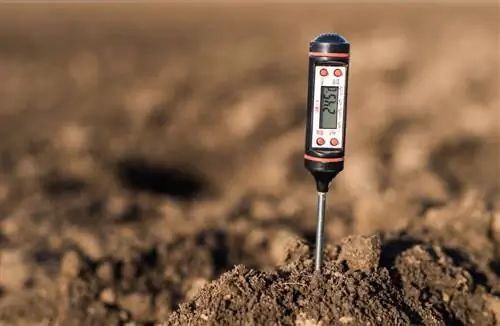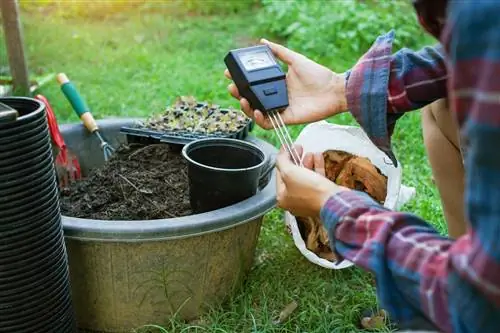- Author admin leonars@hobbygardeners.com.
- Public 2023-12-16 16:46.
- Last modified 2025-01-23 11:22.
If you want to give the plants optimal living conditions, the right location is not enough. If the soil values are not right, the plants remain small and languish. If you would like to get to the bottom of the problem, it can be very helpful to have a soil analysis carried out. This way you not only find out the pH value, but also which nutrients are contained in the substrate.
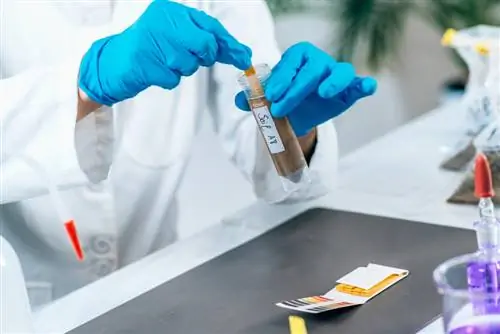
How can I test the soil in the garden?
To test the garden soil, you can determine the pH value with a simple test stick from a specialist retailer or have a professional soil analysis carried out, which also determines nutrient content and heavy metals.
This is how grandma determined the pH value
Our grandmothers, who did not yet have access to the services of a laboratory, had their own recipes for finding out whether the soil is acidic, neutral or alkaline.
- Take two cups.
- Put distilled water and a packet of baking powder in one.
- Pour some vinegar into the other container.
- Now add a little of your garden soil to each cup.
If foam forms in the container with the vinegar, the soil is alkaline. If it hisses when you crumble the soil into the baking soda and water mixture, the substrate is acidic. If nothing happens, you have neutral garden soil.
In this way you can at least tend to determine what the soil condition is like.
Easy soil analysis using test sticks
If you would like to determine the soil values yourself, you can use one of the test sets available from specialist retailers (€22.00 on Amazon).
- First remove about 100 g of soil and place the soil in a sufficiently large, clean jar.
- Mix the substrate with 100 ml of distilled water.
- After a rest period of about 10 minutes, hold the litmus strip into the liquid.
- You can read the pH value of the soil based on the discoloration.
The expert soil analysis
You can have this done by some agricultural examination and research institutes. The simple version, which is usually sufficient for hobby gardens, costs around twenty euros. With this you can:
- the humus content,
- the pH value,
- the content of potassium, magnesium and phosphate
determine.
More complex analyses, which cost from 50 EUR, also include the values of nitrogen, various trace elements and any heavy metals contained in the soil.
Tip
Whether it's a vegetable or flower bed, an orchard or a lawn, you need a separate soil sample for each garden area. This should consist of ten punctures that are as even as possible and distributed over the area. Take the samples very carefully, as this is the only way the soil test can be truly meaningful.

